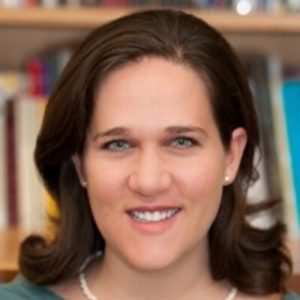 One lonely evening, I sat outside of my office feeling particularly discouraged and trapped. I wanted more out of life, but I didn’t know what I was really searching for. I asked a fellow candidate this question: “What do you think is the greatest thing that could ever happen to you?”
One lonely evening, I sat outside of my office feeling particularly discouraged and trapped. I wanted more out of life, but I didn’t know what I was really searching for. I asked a fellow candidate this question: “What do you think is the greatest thing that could ever happen to you?”
We were sitting on an old leather couch in the common area outside our offices in the English department. What would she say? What would I have said? Was she thinking about marriage and children? Was she thinking about a Nobel Prize?
She looked at me carefully and answered, “To get a research article published.”
I nodded my head in acknowledgment of her answer. Then because I didn’t say a word and the silence was probably uncomfortable, she added, “I guess I don’t really know.” We were sad; both of us looked at our shoes, and although nobody spoke, I think we both knew we were somehow missing out on a grander story. We knew that publication in an academic journal would matter in some ways, but saying that it answered the question of what the best thing might be suddenly seemed ridiculous.
Would publication be our only and greatest legacy?
In those years, God kindly led me to reconsider my life purpose. It took two years for me to process this. Eventually, I came to realize that God created me to know him, follow him, and be part of his plan to redeem and bless the world. The avenue for me doing this was teaching, research, and writing—yes, even about 19th Century British lyric poetry, in particular, Samuel Taylor Coleridge, William Wordsworth, and Elizabeth Barrett Browning. The greatest thing that could happen to me—the grander story—was that I might abide in Jesus and could participate in whatever God was doing on this earth to bring glory to himself. That marvelous story meant that every day in the English department was about Jesus orchestrating divine encounters to advance kingdom purposes.
Suddenly, my little kingdom of publishing and college teaching bowed to the magnificence of God’s grand design to include me, with my gifts and talents, in his redemptive plan. I still loved all my research, teaching, and courses, but now they shimmered with the glory of God’s purposes in these places. They became sacred spaces; teaching was a sacred vocation; research began an unearthing of God’s design in my topic; my courses were holy sites, a place to appropriately search for ways God’s truth might permeate the darkest literary theory that set itself up against the knowledge of God. –Heather Holleman, Penn State
